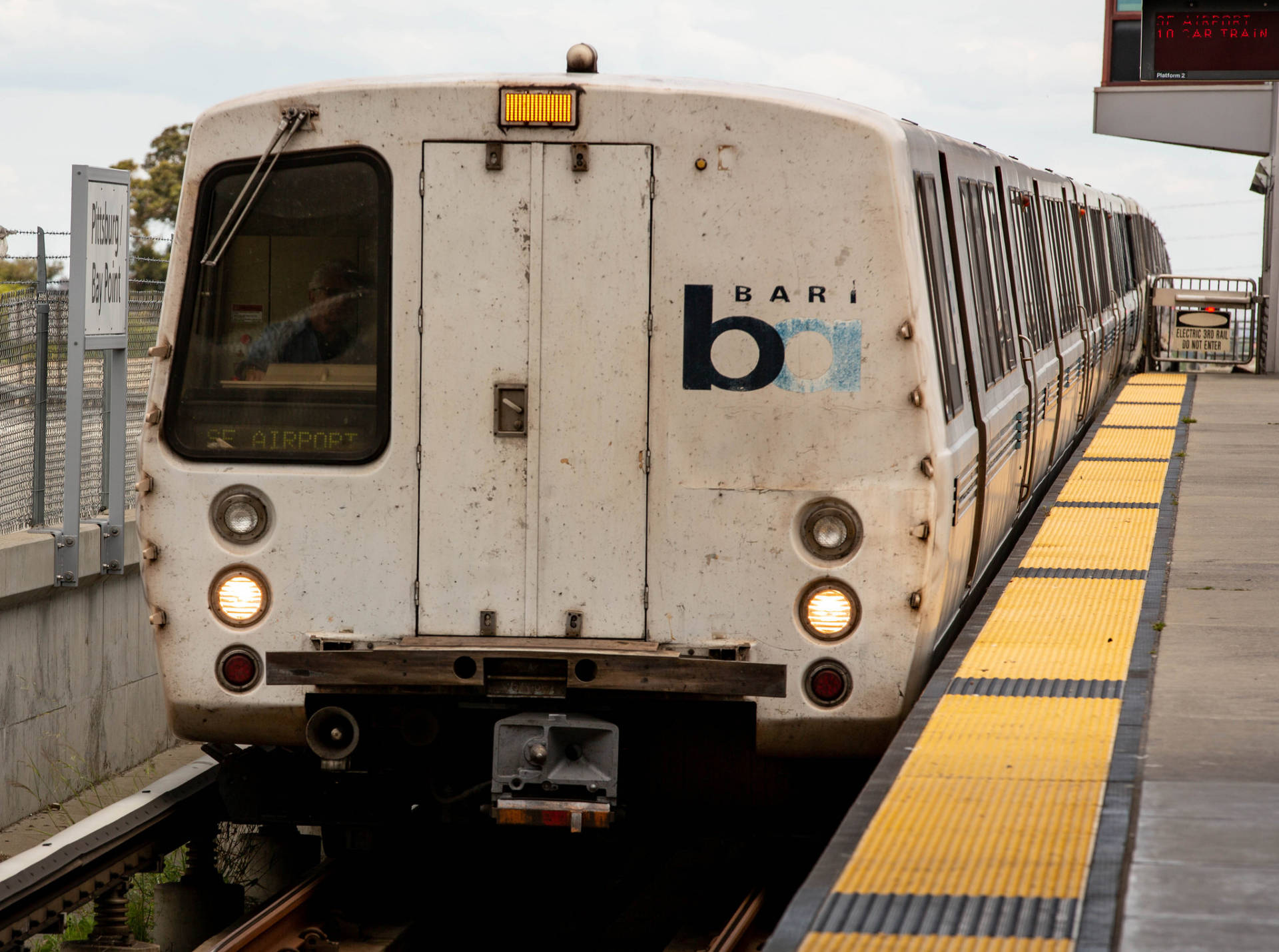Virtually every one of the proposals was the subject of some form of criticism from the large crowd that showed up to comment during Thursday’s board meeting in downtown Oakland.
Alarm About Surveillance Proposal
Many took aim at comments earlier this week by board member Nick Josefowitz, who suggested earlier this week that facial recognition technology could be used in conjunction with BART’s camera network to identify people “who have a warrant out for their arrest.”
“The board should explicitly reject the suggestion from at least one board member to add face surveillance to the BART system,” Mike Chase, a member of the American Civil Liberties Northern California board of directors, said. “This technology is biased, dangerous — it has no place on the BART system.”
Chase and others also took BART to task for releasing a major surveillance proposal while providing no details about how it would work. Critics also pointed out that BART has been working with privacy groups for nearly two years to develop a policy that would govern issues like surveillance and customer data — a process that that’s nearly complete.
“You don’t greenlight $30 million in taxpayer funds based on two paragraphs of text,” Brian Hofer, chair of the city of Oakland’s Privacy Commission. “… We have a surveillance ordinance that’s almost ready … and it’s designed exactly as the vetting mechanism for such a proposal as is here before you today.”
Other speakers accused BART of using Wilson’s murder on July 22 as an excuse for imposing policies that they say will may be turned against the poor and people of color.
James Burch, policy director for the Anti Police-Terror Project, said the board had not acted on demands to fire a BART police officer who shot and killed Sahleem Tindle, 23, outside the West Oakland station in January.
In contrast, Burch said, “I do see you taking advantage of an opportunity to pass through surveillance measures that further criminalize who are trying to ride the BART.”
Some audience members — and some members of the BART board — said the security plan failed to consider rider, employee and community input and how groups around the region might contribute to making the system safer to ride.
‘Why Don’t We Ask?’
“Why don’t we ask people?” Dufty asked. “… Why don’t we ask what we should be doing instead of always trying to bake the cake and present it? I think that’s a mistake on our part. … We are at a stage right now where we need to sit down with our riders and the public so that things (like elements of the security proposal) are not a surprise.”
But Contra Costa County board member Joel Keller said he felt the meeting was not hearing the perspective of the many riders he said had contacted him about their fears of riding BART.
“We have heard half the story here today, and only half the story,” Keller said. “… If we act on anything today, we only act with half of the information. We haven’t heard from the frightened riders who are reluctant to use our system, and I think we should hear from them and make a balanced decision about what we’re going to do.”
The board agreed to Keller’s suggestion to schedule an evening public hearing in a suburban location — perhaps in central Contra Costa County or in the Dublin-Pleasanton area.
Keller, who has served on the committee developing the district’s privacy and surveillance policy, also expressed frustration that the guidelines are not yet in place.
“Here we are two years later, and we’re not able to use technology because we haven’t been able to finalize that policy,” Keller said. “Let’s bring the damn policy to the board and have a vote on it.”
The board informally agreed to try to act on the policy within the next month.
In a protracted, bewildering round of voting on the safety and security proposal itself — members expressed confusion about what motions they were voting on even as the cast their yeas and nays — the board:
- Postponed action on four items: the purchase and installation of technology that would enable systemwide surveillance; video screens to show patrons real-time surveillance images; the anti-panhandling ordinance; and acceleration of a program to install physical barriers to make it harder to enter the system without paying.
- Approved two items: to explore the purchase of new digital security cameras and emergency call boxes on station platforms.
The board also unanimously agreed to a motion from Josefowitz directing BART management to come up with a plan to for the district to “engage with” community organizations, social service and health agencies, police departments and elected officials “to have a more wholistic response” to safety concerns and other issues, such as homelessness, that afflict the transit system.
Jim Wunderman, president and CEO of the Bay Area Council — the regional business group that helped found BART more than half a century ago — criticized the board for failing to act on most of the safety package.
Earlier this week, Wunderman called for responding to the recent BART crime with a “shock and awe show of force” involving a mutual-aid response from Bay Area police departments. He said reassuring the public the system is safe is needed to keep riders from abandoning BART.
